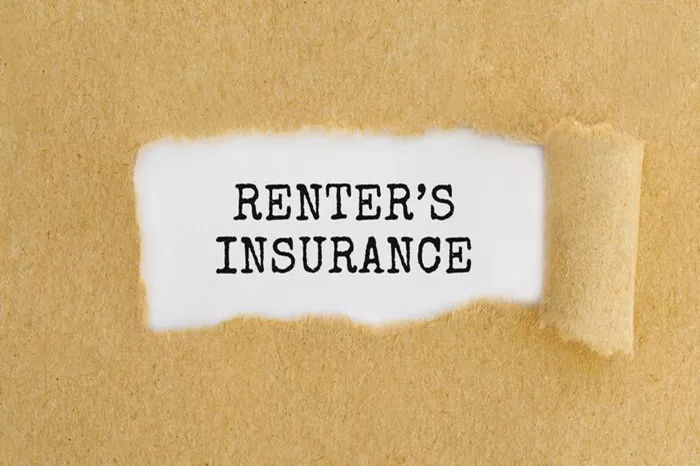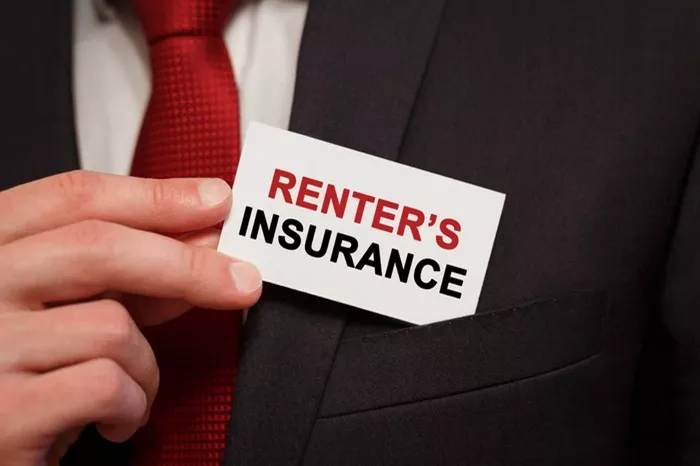Renters insurance is an essential tool for protecting your personal belongings and providing liability coverage while you are renting a home or apartment. This type of insurance is specifically designed for individuals who do not own the property they live in but still want to safeguard their possessions and be protected against potential liabilities. In this article, we will explore how renters insurance works, what it covers, and why it is a worthwhile investment for renters.
Understanding Renters Insurance
Renters insurance, also known as tenants insurance, is a policy that provides coverage for a renter’s personal property and liability. Unlike homeowners insurance, which covers the structure of the home itself, renters insurance focuses on the renter’s belongings within the rented space. It offers protection against various risks, such as theft, fire, and certain types of water damage.
Personal Property Coverage
Personal property coverage is a fundamental component of renters insurance. It helps protect your personal belongings from loss or damage due to covered perils. These perils typically include fire, theft, vandalism, windstorm, and water damage (excluding floods and sewer backups). If your belongings are damaged or stolen, renters insurance can help pay for their replacement or repair.
Personal property coverage usually includes items such as furniture, electronics, clothing, appliances, and other personal items. Some policies may also cover belongings stored outside the home, such as items in a storage unit or a car.
The coverage limit for personal property is typically based on the actual cash value (ACV) or replacement cost value (RCV) of the items. ACV takes into account depreciation, meaning you will receive the current value of the item at the time of loss. RCV, on the other hand, provides the amount needed to replace the item with a new one of similar kind and quality.
Liability Coverage
Liability coverage is another crucial aspect of renters insurance. It helps protect you in the event that you are found legally responsible for causing bodily injury or property damage to others. For example, if a guest slips and falls in your rented apartment and decides to sue you, renters insurance can help cover the legal expenses and any resulting medical costs.
Liability coverage extends beyond accidents that occur within your rented space. It can also provide protection if you accidentally cause damage to someone else’s property, such as knocking over a valuable vase while visiting a friend’s home. Additionally, liability coverage may include legal defense costs if you are sued for libel or slander.
The coverage limit for liability is typically set at a specific dollar amount, such as $100,000 or $300,000. You can choose the coverage limit that best suits your needs, and higher limits may be available for an additional premium.
Additional Living Expenses (ALE) Coverage
In the event that your rented home becomes uninhabitable due to a covered peril, renters insurance can provide coverage for additional living expenses (ALE). ALE coverage helps pay for temporary housing, meals, and other necessary expenses while your home is being repaired or rebuilt.
For example, if a fire damages your apartment and you need to stay in a hotel for a few weeks, ALE coverage can help cover the cost of the hotel room, meals, and other related expenses. This coverage ensures that you are not left financially burdened while your home is being restored.
Medical Payments Coverage
Medical payments coverage is a part of renters insurance that helps cover medical expenses for guests who are injured on your property, regardless of who is at fault. This coverage can be beneficial in situations where a guest sustains a minor injury, such as a slip or fall, and requires medical attention.
Unlike liability coverage, which requires a determination of fault, medical payments coverage is designed to provide prompt payment for minor injuries without the need for legal proceedings. The coverage limit for medical payments is typically lower than the liability coverage limit, such as $1,000 or $5,000.
Exclusions and Limitations
While renters insurance provides valuable protection, it is important to understand its exclusions and limitations. Not all perils or events are covered under a standard renters insurance policy. Some common exclusions and limitations include:
Floods: Standard renters insurance policies do not cover damage caused by floods. If you live in a flood-prone area, you may need to purchase separate flood insurance.
Earthquakes: Damage caused by earthquakes is typically not covered. If you live in an earthquake-prone region, you may need to buy additional earthquake insurance.
Sewer Backups: Damage resulting from sewer backups is usually excluded. You can add sewer backup coverage to your policy for an additional premium.
High-Value Items: There may be limits on coverage for high-value items such as jewelry, artwork, and collectibles. You may need to purchase additional coverage, known as a rider or endorsement, to fully protect these items.
Intentional Acts: Damage caused by intentional acts or criminal activities is not covered.
Neglect: Damage resulting from neglect or failure to maintain the property is excluded.
Choosing the Right Renters Insurance Policy
When selecting a renters insurance policy, it is important to consider your specific needs and circumstances. Here are some factors to keep in mind:
Coverage Limits: Determine the appropriate coverage limits for your personal property and liability. Take an inventory of your belongings and estimate their value to ensure you have adequate coverage.
Deductibles: The deductible is the amount you must pay out of pocket before the insurance coverage kicks in. Choose a deductible that you can comfortably afford in the event of a claim.
Additional Coverage: Consider adding endorsements or riders for high-value items or specific risks that are not covered under a standard policy.
Discounts: Inquire about available discounts, such as bundling your renters insurance with other policies (e.g., auto insurance) or having safety features in your home (e.g., smoke detectors, security systems).
Policy Terms: Review the policy terms and conditions carefully to understand what is covered, what is excluded, and any limitations or restrictions.
See Also: 8 Best Renters Insurance Companies for July 2024
Filing a Claim
In the event of a loss or damage to your personal property, filing a claim with your renters insurance provider is a straightforward process. Here are the general steps to follow:
Document the Damage: Take photographs or videos of the damaged items and make a list of the affected belongings. Include details such as the item’s description, purchase date, and estimated value.
Contact Your Insurer: Notify your insurance company as soon as possible to report the claim. Provide them with the necessary information and documentation.
Complete Claim Forms: Fill out any required claim forms provided by your insurer. Be accurate and thorough in your responses.
Provide Proof of Loss: Submit the documentation of the damage, including photos, videos, and receipts if available.
Meet with an Adjuster: An insurance adjuster may be assigned to assess the damage and determine the amount of compensation you are entitled to. Cooperate with the adjuster and provide any additional information they may need.
Receive Compensation: Once your claim is approved, you will receive the compensation based on your policy terms. The payment can be used to repair or replace the damaged items.
Why Renters Insurance is Worth It
Many renters mistakenly believe that their landlord’s insurance policy will cover their personal belongings. However, a landlord’s insurance typically only covers the structure of the building and not the tenant’s possessions. This is why renters insurance is so important.
Here are some key reasons why renters insurance is worth it:
Protection for Personal Belongings: Renters insurance provides financial protection for your personal belongings in case of theft, fire, water damage, and other covered perils. Without it, you would have to bear the full cost of replacing or repairing your items.
Liability Coverage: Accidents can happen, and if you are found responsible for causing injury or damage to someone else’s property, renters insurance can help cover the costs. This can prevent you from facing significant financial liability.
Affordable Premiums: Renters insurance is relatively affordable, with policies often costing just a few hundred dollars per year. Considering the protection it offers, it is a small price to pay for peace of mind.
Temporary Housing: If your rented home becomes uninhabitable due to a covered peril, renters insurance can help cover the cost of temporary housing and related expenses. This ensures that you are not left without a place to stay during repairs.
Peace of Mind: Knowing that you have insurance coverage in place can provide peace of mind. You can rest assured that your belongings and financial well-being are protected.
Common Myths About Renters Insurance
Despite its importance, there are several myths and misconceptions about renters insurance that can deter people from purchasing a policy. Let’s debunk some of these common myths:
Myth 1: Renters insurance is too expensive. Fact: Renters insurance is typically very affordable, with policies available for as little as $10 to $20 per month. The cost is relatively low compared to the coverage and protection it provides.
Myth 2: My landlord’s insurance will cover my belongings. Fact: A landlord’s insurance policy only covers the structure of the building, not the tenant’s personal belongings. Renters insurance is needed to protect your possessions.
Myth 3: I don’t have enough valuable items to warrant insurance. Fact: Even if you don’t own expensive items, the cost of replacing everyday belongings like clothing, furniture, and electronics can add up quickly. Renters insurance can help cover these costs.
Myth 4: Renters insurance only covers theft. Fact: Renters insurance covers a wide range of perils, including fire, water damage, vandalism, and more. It provides comprehensive protection for your belongings.
Myth 5: Renters insurance is only for young people or students. Fact: Renters insurance is beneficial for anyone who rents a home or apartment, regardless of age or life stage. It offers valuable protection for personal belongings and liability.
Conclusion
Renters insurance is a vital safeguard for anyone who rents a home or apartment. It provides coverage for personal property, liability, additional living expenses, and medical payments. By understanding how renters insurance works and choosing the right policy, you can protect yourself from financial loss and gain peace of mind. Despite common myths, renters insurance is affordable and offers comprehensive protection for your belongings and potential liabilities. Investing in renters insurance is a smart decision that can save you from significant financial hardship in the event of a loss or accident.






















